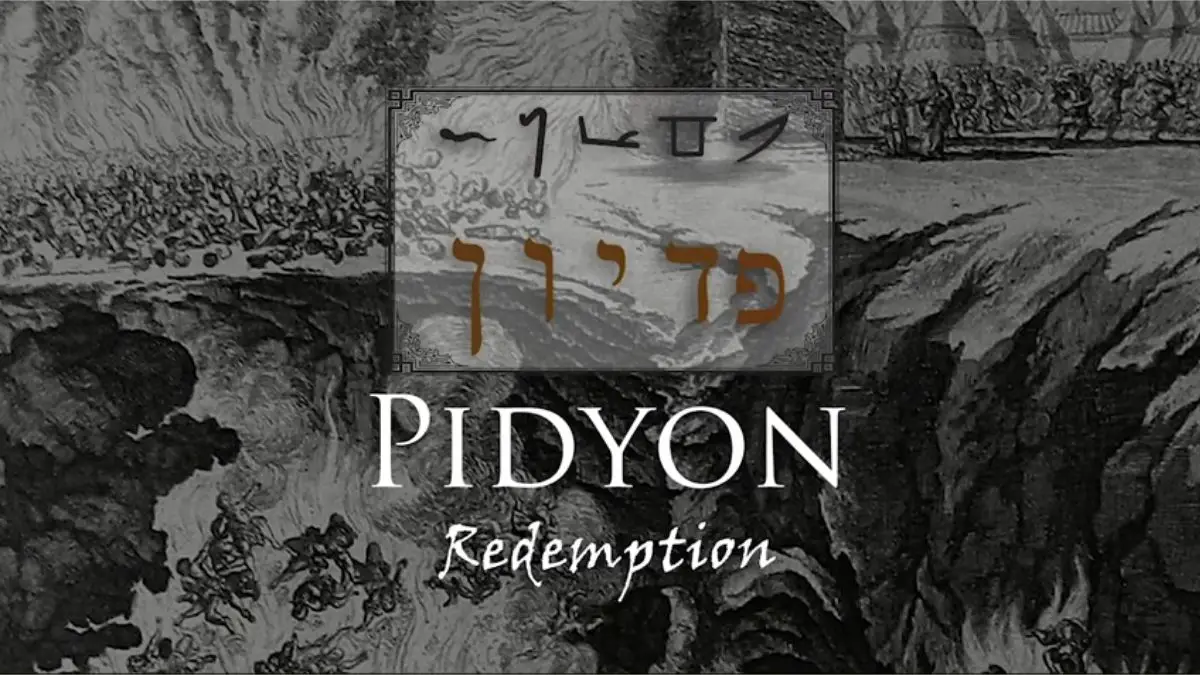In Judaism, redemption ceremony is one of the 613 commandments proclaimed by God is that every firstborn male among the Hebrews belongs to God and must be sanctified.
The idea of “first” has always held a special position in Judaism. For instance, the Torah specifies that the first fruits and firstborn kosher animals had to be brought to the Cohens (priests at the Temple).
The first of all things belong to God, and this principle applies to children as well. In some cultures during biblical times, this would have required nothing less than a physical sacrifice of the newborn baby However, God decreed an additional mitzvah by providing for the redemption of the child.
Another explanation for this tradition has to do with the Exodus from Egypt when God spared the firstborn Jewish males from the final plague. Because the Jews are indebted to God for the firstborn males, they should be redeemed.
Redemption is not necessary if the firstborn is a girl, because the tenth plague never placed the lives of firstborn females in jeopardy. (In this case, any children thereafter are not subject to redemption.) Moreover, the mother of the firstborn male child must be Jewish.
Otherwise, according to traditional Judaism that follows the matriarchal bloodline, the child is not Jewish and is not subject to this commandment. Family lineage also plays a role when it comes to this ritual. If either the father or mother is a Cohen or Levi, redemption is not necessary.
Things get even more technical because the mitzvah specifically refers to the firstborn as one who “opens the womb.” Therefore, a child delivered by cesarean section does not fall within the definition and is not redeemed.
If subsequent children are born in the traditional fashion, most believe redemption does not apply in such instances. In cases of miscarriage or stillbirth, there is no redemption for any children born later.
As for twin boys, the first one out of the gate gets redeemed! The redemption ceremony is called Pidyon Ha-Ben, which literally means “redemption of the son.”
Some families have developed a parallel ceremony for firstborn girls, called Pidyon Ha-Bat. The ritual must take place on the thirty-first day of the child’s life or as soon as possible thereafter.
Since a monetary transaction is involved, the ceremony may not occur on Shabbat or on any biblical holiday. While it is traditional for Ashkenazic Jews to conduct the ceremony during the day, Sephardic Jews usually perform it at night.
Although not necessary, it is desirable to have a minyan (ten Jewish adults) during the ceremony, but the father of the child and a Cohen must be present.
Appropriate blessings are made for washing the hands and breaking the bread. At this time, the redemption is made and then the meal is eaten. In preparation for the ceremony, the appropriate sum of money is set aside on an ornate tray (preferably silver).
In the Torah, the amount to be paid was set at five sela’im (equal to about 100 grams of silver). Today, this sum translates to about $4 or $5, in silver dollars, if possible.
Traditionally, the baby is placed on another tray and the father carries his son to the Cohen. As he holds the boy on the tray, the Cohen performs a brief ritual, which includes blessings and recitations. During the ceremony, the father hands over the money to the Cohen, and the Cohen blesses the child.
A blessing is made over the wine and the gathered people enjoy a festive meal. If the mother is Jewish but the father is not, the firstborn male should be redeemed by the mother. However, it is advisable for the boy to perform the redemption again after reaching the age of thirteen without reciting the customary blessings.


